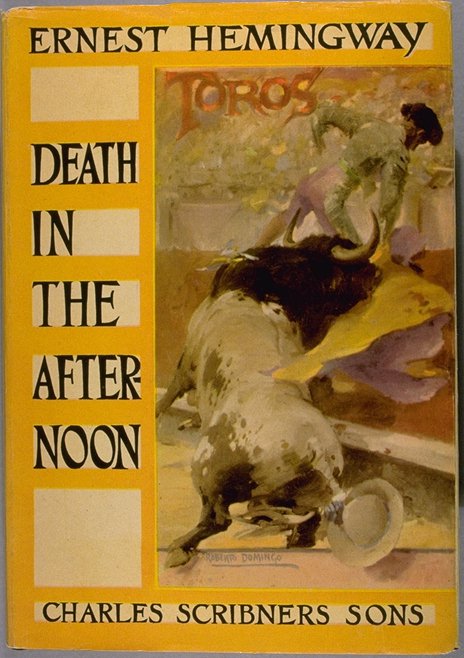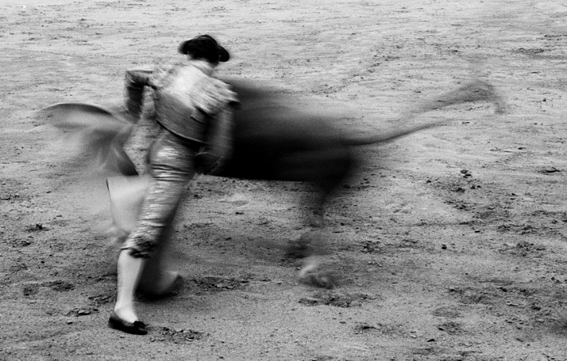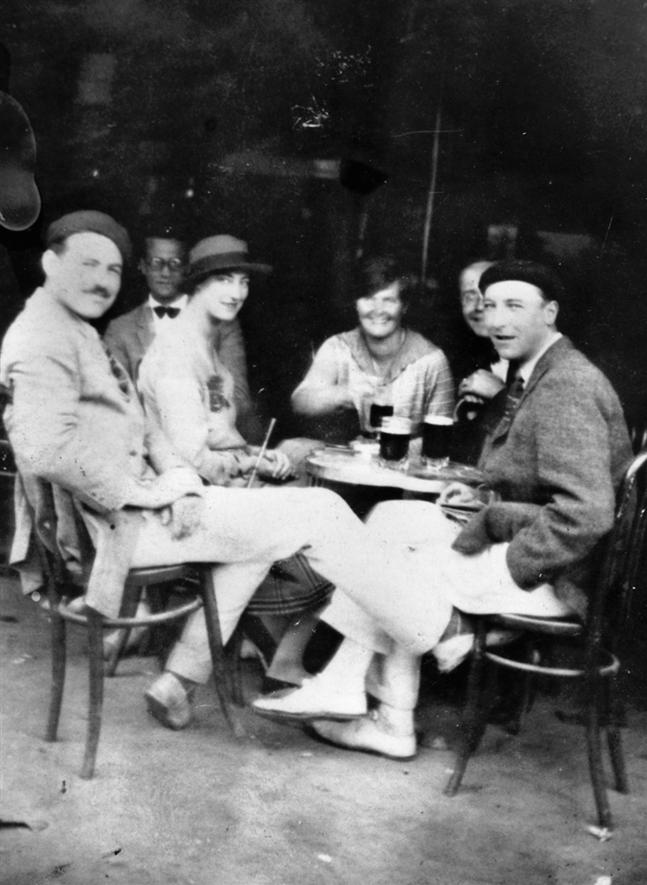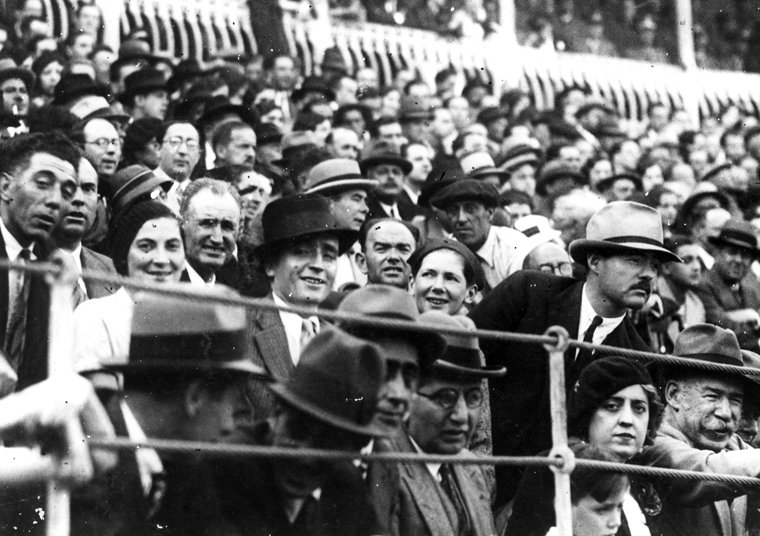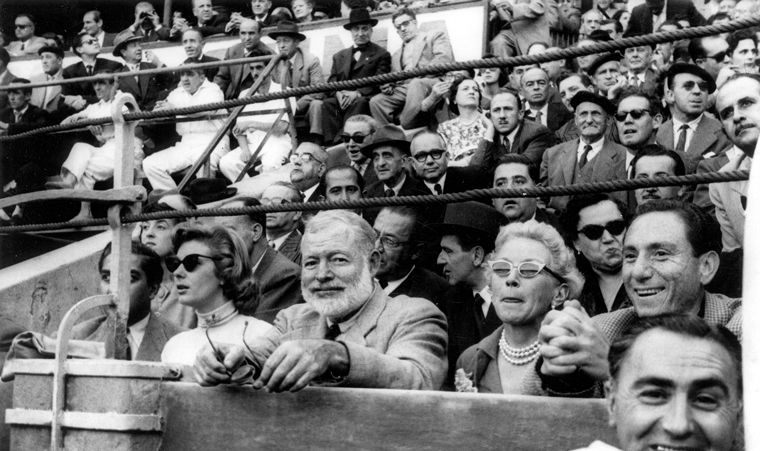Ernest Hemingway’s Death In the Afternoon is a really wonderful book, and also one of the God-damnedest books ever written. It’s very hard to categorize or even describe.
It presents itself as a treatise on bullfighting, and it is that to a degree. You can learn an awful lot about bullfighting from it. I don’t know how reliable its information is but I can attest that it’s fascinating and extremely entertaining information. Hemingway, being a storyteller, can rarely stand to pass along any wisdom without attaching a tale or anecdote illustrating that wisdom in practice.
But information is not really the point of the book. What it really sets out to do is celebrate Hemingway’s passion for the subject, his joy in elucidating its subtleties and meanings, and at the same time recapture for himself and convey to us the atmosphere of the places in Spain where he came by his knowledge.
The tone of the book is conversational, though it’s an eccentric style of conversation, because Hemingway was an eccentric. It’s also a very good-humored book and often quite funny. We see Hemingway’s wit here at its best, without the labored jollity found in much of his later work.
There are, too, here and there, passages of sublime writing, of absolutely breathtaking prose. It’s not what you could call a “major work” but it has some major writing in it, on one subject or another.
A year and a half before he started writing this, Hemingway had published one of the great novels of the 20th century, A Farewell To Arms, which was both a critical and a commercial success. He was acknowledged almost universally as one of the most important writers of his time. He was well-off financially, from his work and from his second wife’s fortune. He was young, 32 years-old, good-looking, brilliant and vigorous.
It was a time in his life before his self-doubts began to overwhelm him, before he cared much what critics thought, because most of them thought well of him. He had nothing to prove to anyone but much to share.
All of that good fortune shines through the book, written in an exhilarating state of grace, from a deep reserve of strength and faith in his own ambition. Reading it is like taking a drug, drinking from a fountain of youth. It was a fountain that ran dry for Hemingway, as it will for all of us, but Death In the Afternoon will never run dry, its invigorating waters will always run as clear and strong as a Spanish trout stream.

